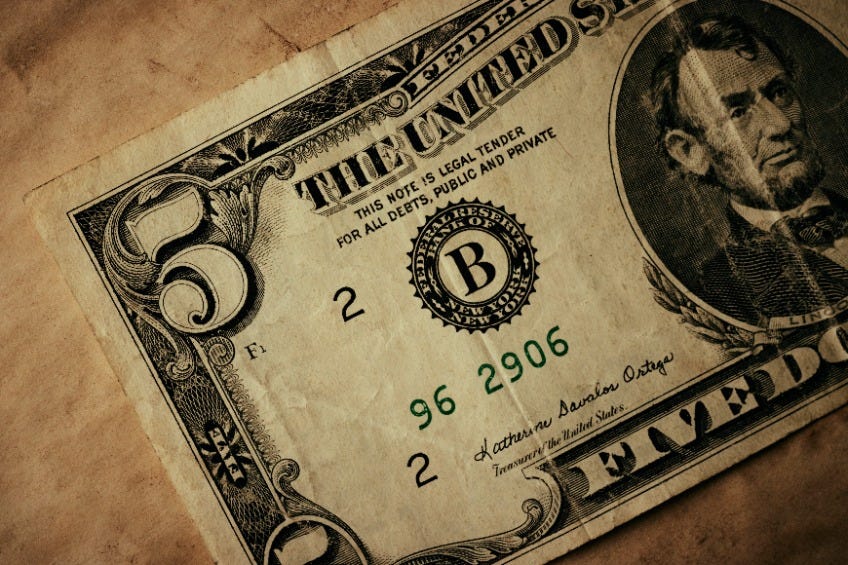Today In Black History
Rev. Dr. Pauli Murray, educator and civil and women's rights activist.
Issue #568 Today In Black History, Tuesday, April 16, 2024
A full podcast of the audio for the eight weekly W.A.S. posts from the previous week will be published every Tuesday (starting April 23) on Apple Podcasts and Spotify Podcasts.
Please also scroll to the end of this post for other ways to financially support We Are Speaking.
Thank you for your support!
Today’s Black History WOW!
Anna Pauline "Pauli" Murray was an American civil rights activist, advocate, legal scholar and theorist, author, and – later in life – an Episcopal priest. Murray's work influenced the civil rights movement and expanded legal protection for gender equality.
Pauli Murray was born in Baltimore, Maryland on November 20, 1910, the fourth of six children to nurse Agnes Fitzgerald and educator William Murray. Agnes Fitzgerald Murray died of a cerebral hemorrhage in 1914. William suffered from depression exacerbated by the long-term effects of typhoid fever and was eventually confined to Crownsville State Hospital where he was later murdered by a white guard in 1923.
After graduating from Hillside High School in 1926 with a certificate of distinction, Murray moved to New York City, attending Hunter College and graduating in 1933 with a degree in English Literature. She changed her birth name to “Pauli,” and throughout the 1930s, actively questioned his gender and sex. He repeatedly asked physicians for hormone therapy and exploratory surgery but was denied gender-affirming medical care.
Murray was considered an early transgender rights figure in U.S. history.
In 1941, Murray enrolled at the law school at Howard University to become a civil rights lawyer. The following year she joined George Houser, James Farmer, and Bayard Rustin to form the nonviolence-focused Congress of Racial Equality.
In 1944, Pauli Murray graduated from Howard University at the top of her law school class. The Rosenwald Fellowship was awarded to the valedictorian, and previous top graduates had used the fellowship to attend Harvard University. Despite winning the fellowship, Murray was rejected from Harvard Law School due to sexism.
Also in 1944, Murray applied to attend graduate school at the University of North Carolina but was denied admission due to race. These experiences inspired Murray to pursue a career in law, and in 1965, she became the first African American to receive a J.S.D. degree from Yale Law School.
In the early 1950s, Dr. Murray, like many Black citizens involved in the civil rights movement, was suppressed by McCarthyism. In 1952, she lost a US State Department post at Cornell University because the people who had supplied her references (Eleanor Roosevelt, Thurgood Marshall, and A. Philip Randolph) were considered “too radical.”
Dr. Pauli Murray joined Betty Friedan and others to found the National Organization for Women (NOW) in 1966 but later moved away from a leading role because she did not believe that NOW appropriately addressed the issues of Black and working-class women.
In 1977, Pauli Murray became the first Black woman in the U.S. to become an Episcopal priest.
The mission of Pauli Murray College at Yale University is to carry forward Pauli’s vision for a better society through its community members and its commitment to promoting diversity and inclusion.
In recognition of her contributions to civil rights and social justice, Rev. Dr. Murray was posthumously awarded the Presidential Medal of Freedom in 2012.
On July 1, 1985, Rev. Dr. Pauli Murray died of pancreatic cancer at age 75.
Today In Black History
- In 1862, President Abraham Lincoln signed a bill emancipating all slaves within the District of Columbia. Over the next nine months, the federal government paid almost $1 million for the freedom of approximately 3,100 former slaves. Today, “Emancipation Day” is celebrated in D.C.
- In 1868, Antoine Dubuclet of Louisiana was elected as the first Black State Treasurer.
- In 1869, Ebenezer Don Carlos Bassett became the first African American to serve in a diplomatic post for the United States when he was appointed Consul-General to Haiti and The Dominican Republic.
- In 1895, Black inventor C.J. Dorticus received a patent for a photo embossing machine.
- In 1963, Rev. Dr. Martin Luther King, Jr. wrote his “Letter From the Birmingham Jail” while he was jailed for demonstrating.
- In 1965, Major General Benjamin O. Davis, Jr. was named a lieutenant general, the highest rank attained by a Black person up to that date.
- In 1987, playwright August Wilson was awarded the Pulitzer Prize for his play “Fences.”
The “Comments” feature has been disabled. Instead, let’s discuss these facts in our community on Substack Notes. You can also read other Substack publications without subscribing to them when you join Notes.
This post is free to read/listen to for three days after publication. To have 365 24/7 access to all our posts and podcast episodes and financially support “We Are Speaking” for no more than $5 per month, please subscribe at the paid level. You will receive a 7-day FREE trial!
Independent Authors and Creative Professionals: Branding and Marketing Courses and Networking Groups are available in the GCC Branding and Marketing Academy!
Pam’s Business Books and Keith’s SciFi Books are available for purchase here!







